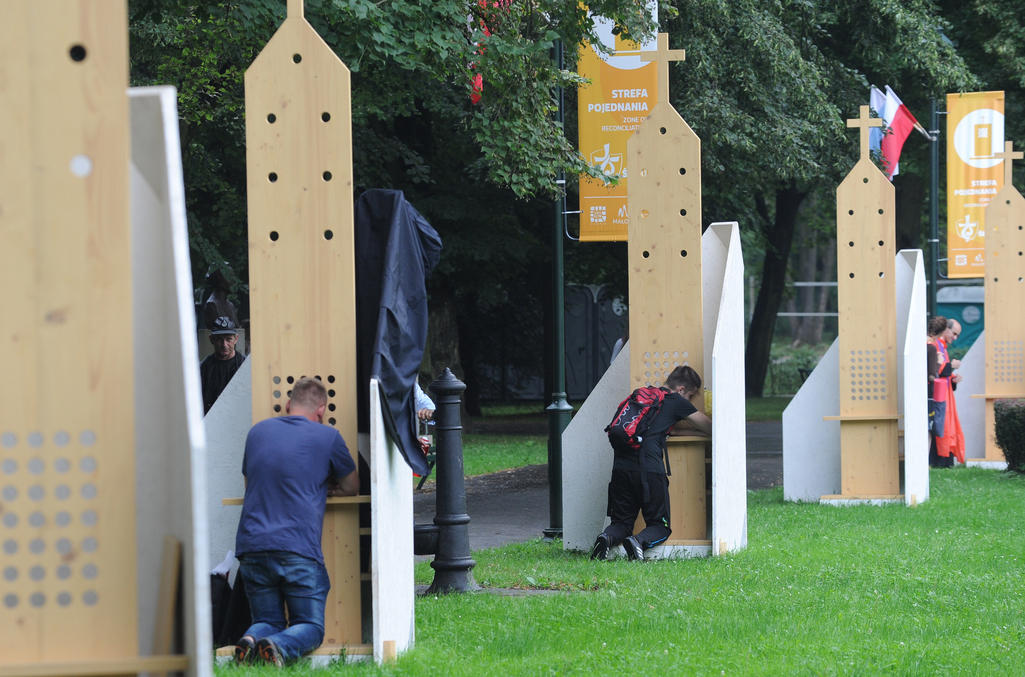
WARSAW — When Pope Francis arrives in Poland this week to attend World Youth Day, one of the major events on the Catholic calendar, he will face a politically powerful church closely tied to the country’s new right-wing government. The church here carries a deep strain of social conservatism that does not always align with the pope’s more open and welcoming views.
“Poland has more parishes than it has hospitals and schools,’’ said Tadeusz Bartos, a theologian at the Academy of Humanities in Pultusk. “It is everywhere. In small communities, the priest and the mayor are the two most important figures.’’
Ninety-two percent of Poles identify themselves as Roman Catholic. Many attend church weekly: about 40 percent, church officials estimate, far higher than in other nominally Catholic countries.
“Our religion is now alive in Poland in a way that it is not in Western Europe,’’ said Jaroslaw Sellin, deputy minister of culture from the governing party Law and Justice. “We organize our lives from birth to death with a series of religious ceremonies.’’
Pope John Paul II, born Karol Jozef Wojtyla in Wadowice, Poland, and canonized in 2014, remains among the most venerated and beloved figures in his country’s history. World Youth Day, which takes place every two or three years, was begun by him in 1985.
But the current pope’s more inclusive language — preaching a welcoming message to gays and refugees, for instance, and opening a way for divorced Catholics to receive the sacraments — is sometimes at odds with the way the faith is taught and understood in Poland.
“We need to understand that the Polish Catholic Church, and a majority of Catholic Church clerics, are not so close to Pope Francis,’’ said Michal Boni, a member of the European Parliament representing Civic Platform, the center-right party that governed Poland before being defeated by Law and Justice in elections last fall. “The church is changing, and I think many leaders of the Polish church are not in line with the direction of that change.’’
Polish church officials reject this interpretation, saying they remain, as always, in line with the Vatican, and they dispute that the church here is driven by a desire for political power.
“The pope does not look on the left or on the right, but looks up,’’ said the Rev. Pawel Rytel-Andrianik, a spokesman for the Conference of the Polish Episcopate. “In our mentality, the pope is the pope. Every Pole has two capitals, Warsaw and Rome.’’
And while there may be a shift in tone from this pope, it has not yet been matched by fundamental changes in church doctrine.
“I don’t find there are any deviations from official teachings,’’ Sellin said. “For Catholics, what is important is not his private opinions but his official teaching.’’
One issue that is troubling to many Polish clerics, said Jaroslaw Makowski, a historian, theologian and Civic Platform member, is the pope’s insistence on a humble lifestyle for priests.
“Every time he talked about the need to be poor and modest, he hit a nerve with a Polish clergy that is known for its lavish lifestyle,’’ Makowski said.
No one expects that there will be any open discord during the pope’s four-day trip to Krakow, which is scheduled to begin Thursday and will include a visit to Auschwitz and to the monastery of Jasna Gora, Poland’s most revered pilgrimage site.
But eyes will be alert for any signs of dissonance.
“Church leaders are a bit confused,’’ said Bartos, the theologian. “They don’t know how to behave. They know they cannot oppose him openly. But they don’t feel protected by this pope. They feel accused.’’
The new government has been generous with the church. Sizable grants have gone to Radio Maryja, a conservative Catholic media network that supported Law and Justice, as well as to the building of a huge Temple of Divine Providence south of Warsaw. In both cases, government officials say, money did not go directly to the church — that is not legal — but to projects sponsored by the church, such as a concert organized by Radio Maryja.
“There are many grants that the government gives out, but we treat them all in the same way,’’ Sellin said. “And among them may be grants involving Catholic or religious institutions, as well. Why not?’’
When politics clashes with the church’s desires, though, the new government still attends to popular will. This year, legislators proposed strengthening Poland’s already strict abortion laws by imposing a complete ban. That led to large protests, and the legislation was shelved, though some expect it to be revived whenever Jaroslaw Kaczynski, the dominant leader of Law and Justice, feels the time is right.
One issue on which church and government have taken different positions is immigration. In last year’s election, Law and Justice took a hard-line stance against admitting refugees, with Kaczynski speaking darkly about terrorism and disease. But the Polish church has echoed Pope Francis, arguing that those fleeing war and persecution should be welcomed.


 PREVIOUS ARTICLE
PREVIOUS ARTICLE